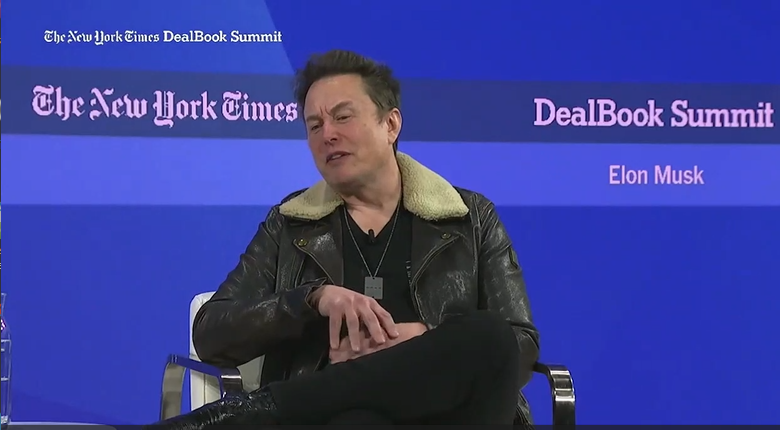
On Wednesday, fanboys cheered when Elon Musk told Disney "go f*ck yourself.” But they ignored his prophecy of an immanent "digital God.” They seemed to miss his play to train xAI on their X data, and to perhaps build that computer god himself. It’s as if people hear what they want to hear and see what they want to see.
In "less than three years,” Musk assured Andrew Sorkin at the NYT DealBook Summit, we’ll have software that’s "smarter than the smartest human at anything.” This thinking machine will allegedly make new discoveries in physics, invent new technologies, and spin best-selling yarns.
According to the Cambridge Dictionary, when we encounter "a spirit or being believed to control some part of the universe or life and often worshiped for doing so,” we are supposed to call it a "god.” Of course, most tech firms will keep calling AI an "exciting new product!!”—at least for now—but anyone paying attention knows what they mean. "We believe Artificial Intelligence is our alchemy, our Philosopher’s Stone,” venture capitalist Marc Andreessen and his e/acc pals recently declared, "we are literally making sand think.”
At present, generative AI programs like OpenAI’s ChatGPT or DALL·E are simply reworking human literature and art, albeit with a novel spin. But the threat of increased AI capabilities—coupled with a nagging fear that human originality may be spent—was enough to spark a year-long writer’s strike in Hollywood. That dilemma includes Musk’s projects at xAI, such as Grok, which enjoy exclusive access to the user content on X.
"Data is probably more valuable than gold,” he mumbled at the NYT summit. Pressed on copyright ethics and the legal ramifications, Musk shrugged it off and pivoted to the apocalypse. "By the time these lawsuits are decided, we’ll have digital God, so…these lawsuits won’t be decided in a timeframe that is relevant.”
This quest to build digital deities is as much about power as it is intelligence. A superhuman disembodied mind, humming away in a massive computer, would presumably be the final authority on any question worth asking or problem worth solving.
"Computer says ‘No.’”
As it replicates and self-improves, they say, true artificial intelligence would dominate the pitiful intellects of mere humans. Once digital minds have a suitable robotic body—or swarms of them—they could exert real power over the physical world.
AI will do your homework. It will cure what ails you. It will impress your wife. It will take your job.
Should this Machine decide you’re useless, or just irritating, it may snuff you out. In fact, it may kill the entire human race. That’s the story Musk is going with, anyway, along with various true believers in Silicon Valley. Many techies look forward to this in the same way Christians do the Second Coming of Jesus, or like Muslims awaiting the arrival of the Mahdi in the End Times, or like Hindus, who foresee the warrior avatar Kalki coming in hot as the degenerate Age of Kali draws to a close.
The Singularity may be bloody and horrible, but who said God is always a nice guy?
Of course, neither Christians, nor Muslims, nor Hindus buy into the prophecies of the other—at least not in the same way—but artificial intelligence is a deity that even atheists can believe in. Many anticipate the arrival of AGI with fear and trembling. They’re primed to submit to a new priesthood who can "contain” this digital God and fleece him for blessings.
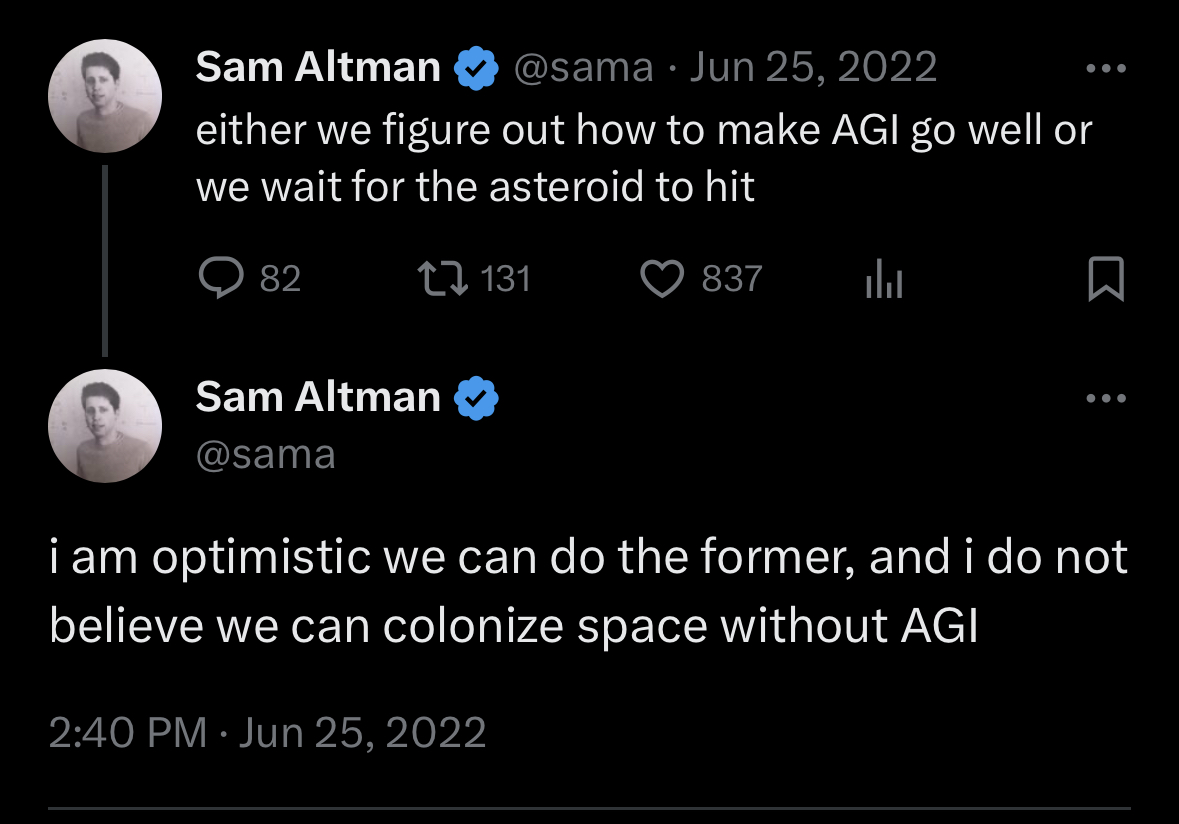
Five years ago, OpenAI CEO Sam Altman told Bloomberg he is certain that AI will overtake human intelligence. "I think it takes, like, unique human arrogance to believe that AI cannot supersede humans.”
"But what about that scares you?” the interviewer asked him.
"So many things,” Altman answered, wide-eyed. "What does it mean to build something that is more capable than ourselves? What does that say about our humanity? What’s that world gonna look like? What’s our place in that world?”
In 2013, just two years before co-founding OpenAI, Altman wrote "the most successful founders do not set out to create companies. They are on a mission to create something closer to a religion, and at some point it turns out that forming a company is the easiest way to do so.”
Today, his techno-religious "nonprofit”—also co-founded by Musk, and now backed by Microsoft—is worth $86 billion. "OpenAI’s mission is to invent AGI—that is, general intelligence,” former Google exec Eric Schmidt told the Axios AI+ Summit last Tuesday. "Humans do better with higher purposes,” he went on. "People with a higher purpose really do much better in society. This is one example of a higher purpose.”
Last week, rumors swirled about the dark possibilities of creating "digital God.” Reuters reported that Sam Altman was fired from OpenAI (only to be reinstated four days later) after staff researchers warned the board that a "new artificial intelligence discovery” could "threaten humanity.”
Hilariously, this "secret” program, leaked by an anon, was called Q*—pronounced "Q-star.” This generative AI’s horrific powers include "performing math on the level of grade-school students.” Given the overall decline in numeracy and general cognitive ability among our hyper-digitized peers, this truly is a serious threat. As people get dumber, the machines seem smarter by orders of magnitude.
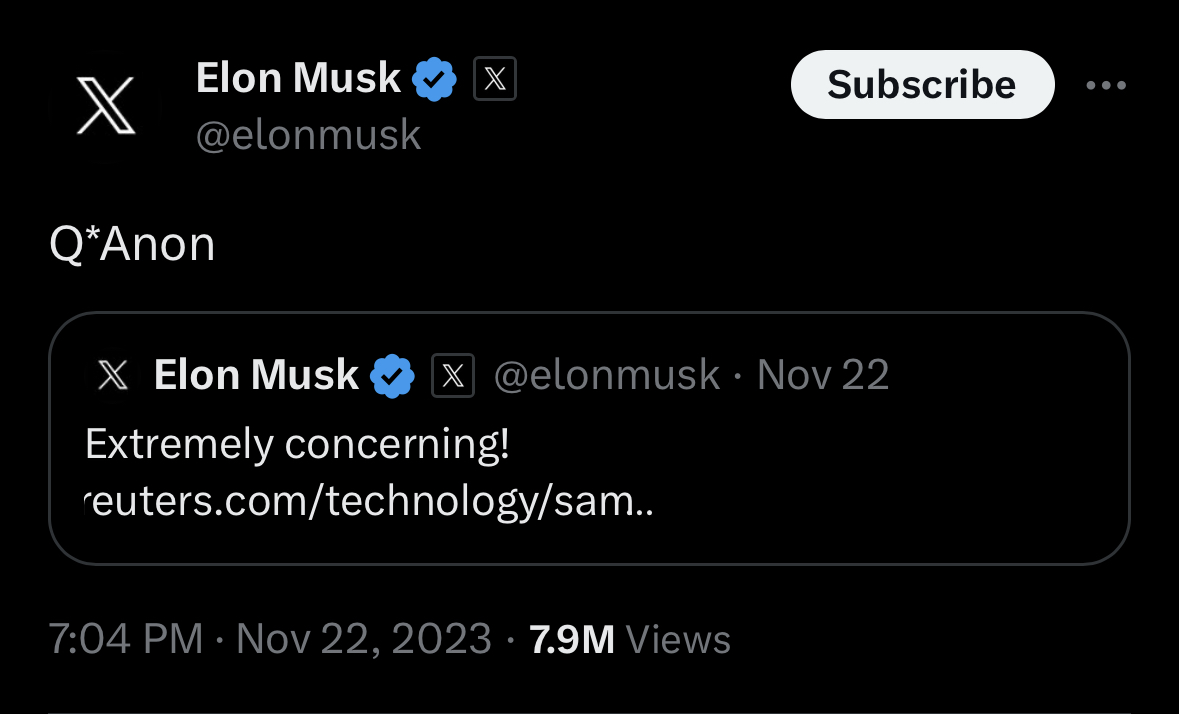
When asked about Altman at the NYT Dealbook Summit, Musk replied, "I have mixed feelings about Sam. The Ring of Power, you know, can corrupt. And he has the Ring of Power.” As to the frightening AI discovery, Musk said, "It sounds like a serious thing. I don’t think it was trivial.” In other words, Musk declared himself a true believer.
In ancient times, the sacred was associated with tremendous danger. Rituals were performed and temples were purified, not as some favor to the deity, but out of sheer terror that one false move would bring famine, earthquakes, or plagues. In ancient Israel, the Holy of Holies was the most dangerous place on earth. Only the purest priests could enter.
In our new world order under the Reign of Quantity, the new gods will be numeric. Their blessings will be rooted in ice cold logic and their wrath executed with lethal precision. Their priests will be master mathematicians who carry digital access cards to the Holy of Holies—or maybe key-chips implanted in their hands.
"AGI—the idea of artificial general intelligence,” Sorkin pitched to Musk, referring to his projects at xAI, "given what you now are working on yourself, and you know how easy or hard it is to train, to create the inferences, to create the weights. I hope I’m not getting too far in the weeds of just how this works, but…” The esoteric objects Sorkin was talking about are the nodes in an artificial neural network—computer code that imitates the structure and function of neurons in an organic brain—"sand” that can "think.”
"It’s funny,” Musk replied, "you know, all these weights—they’re just basically numbers in a comma-separated value file.” He grinned. "And that’s our digital God: the CSV file.” A few people in the crowd got the joke and chuckled. "But that’s kind of literally what it is,” Musk insisted. "It’s coming fast.”
Like an Aztec priest staring at the sun, Musk is looking to the digital cloud for wrath without reason, contemplating the next sacrifice. He is positioning himself as a suffering savior who will beseech a digital God for mercy—presumably through a first-class Neuralink implanted in his brain. Like Eric Schmidt and Sam Altman, Musk wants central governments to harness this dangerous entity, and to protect us from its digital wrath.
For a moment, let’s bracket the actual powers of present or future algorithms. Put out of your mind the current existence of AIs that can beat any human in chess, such as Deep Blue or AlphaZero. Set aside the possibility of an AI that could out-argue any proposition you may put forth, or simply rearrange your body’s atoms into molecules that are more useful to its programmed goals.
Focus instead on the human wealth, power, and prestige at stake here. Look at the incredible capital flow the promise of "artificial intelligence” is commanding. Consider the political pull of anyone believed to be in possession of digital or "intelligentized” weapons so potent, they could pick off adversaries one-by-one—sparing this one, killing that one—all at the press of a button. Contemplate the exalted status of a priesthood whose mystical powers include "literally making sand think.”
The question is not whether these people are creating digital gods. That is obviously happening, and true believers abound. The real questions are whether their idols are worthy of worship—or paralyzing fear—and whether this priesthood deserves such ungodly power.
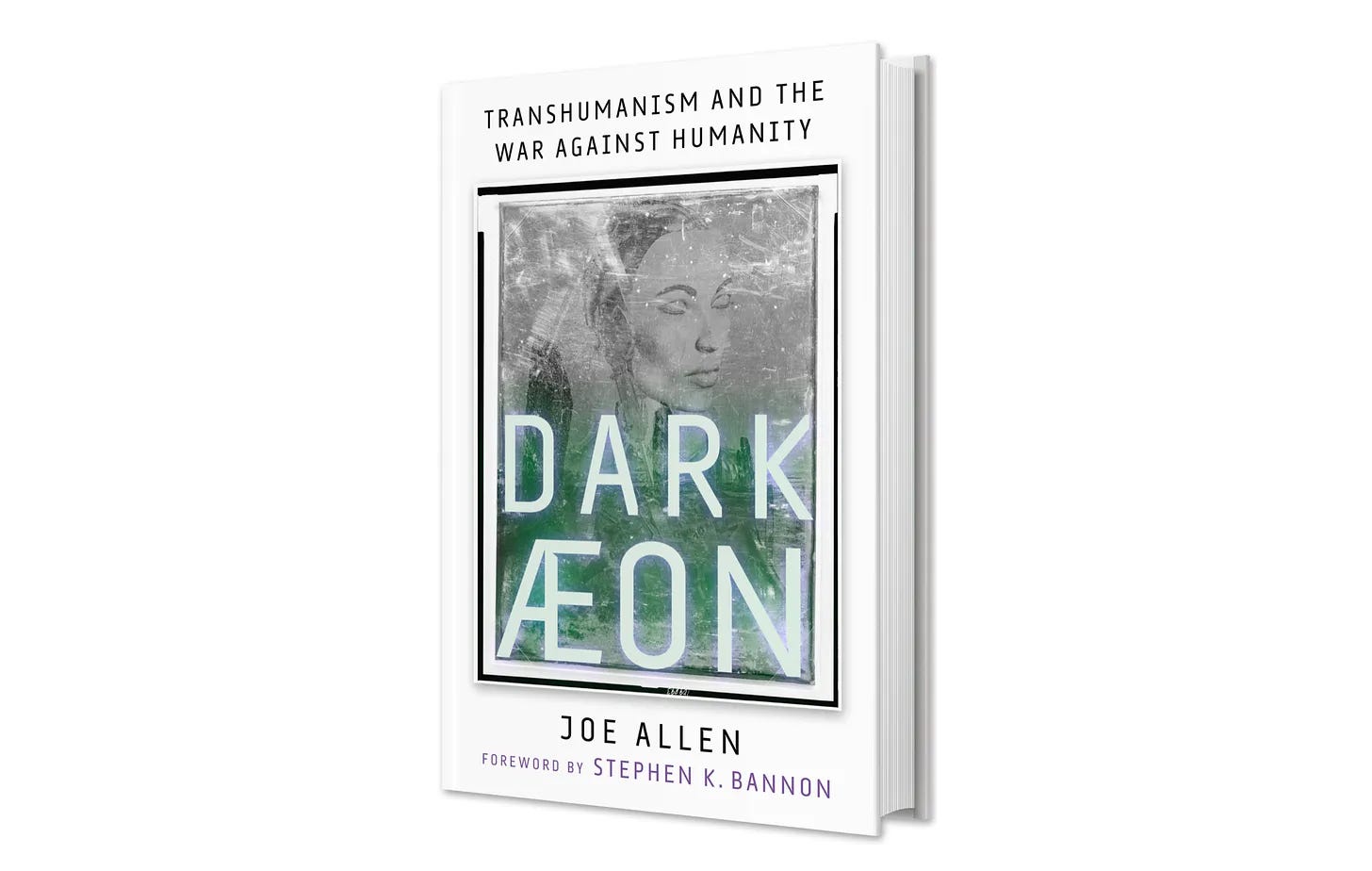
DARK ÆON is now for sale here (BookShop), here (Barnes & Noble), or here (Amazon)
If you are Bitcoin savvy and like a good discount, pick up a copy here at Canonic.xyz


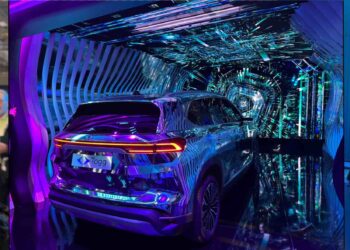



I enjoyed the article and appreciate your work on this topic. Elon Musk tries to position himself as altruistic but he is definitely a technologist who supports transhumanism, a hybrid human. Moreover, funding for the AGI beast projects will likely come from taxpayers. We will fund our own demise and extinction.
China being a communist country has no moral qualms with AI/AGI’s super human powers. It seems we should fear and question the loyalty of the technocrat oligarchs. Clearly, replacing humans with machines as another depopulation project works for them, provided they continue to exist.
You have a gift for explaining things in a way that’s easy to understand. Thanks for another great post!